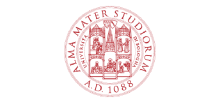
Almost 1000 years old, the University of Bologna (UNIBO) is known as the oldest University of the western world. Nowadays, UNIBO still remains one of the most important institutions of higher education across Europe and the second largest university in Italy with 11 Schools, 33 Departments and about 87.000 students; it is organized in a multi-campus structure with 5 operating sites (Bologna, Cesena, Forlì, Ravenna and Rimini), and, since 1998, also a permanent headquarters in Buenos Aires.
UNIBO has been awarded the "HR Excellence in Research” and is among the top 5 Italian universities in the main International rankings, e.g., 1st Italian university (188th position) in the international QS - World University Rankings of the world best universities; 5th Italian University (288th position) in The World University Rankings; 2nd Italian University (93rd position) in the Ranking Web of World Universities.
At the University of Bologna, activities related to European funding programs are supported by the European Research and Innovation Office. With about 30 people, organized in 4 thematic units plus another unit specifically devoted to ERC and Marie Curie programs, the office assists research groups in the whole project lifecycle: networking and lobbying, consortium building, proposal preparation, negotiation and project management. The European Research and Innovation Office steadily cooperates with the Knowledge Transfer Office, supporting the IP protection and exploitation, and the take up and commercialization of project results.
The Department of Sociology and Business Law (www.sde.unibo.it) of Bologna University has a solid expertise on issues related to health and illness. Several members are involved in European projects on welfare and social policy. More specifically, members (professors and junior scholars/researchers) of the Department do research on sociology of health, health and environment, municipality and local welfare. The Centre the Humanization of Health Care and Community Health is part of the Department. Moreover, the Department promotes the journal “Salute e Società” (Health and Society).
